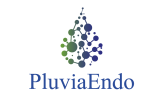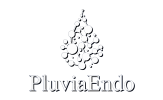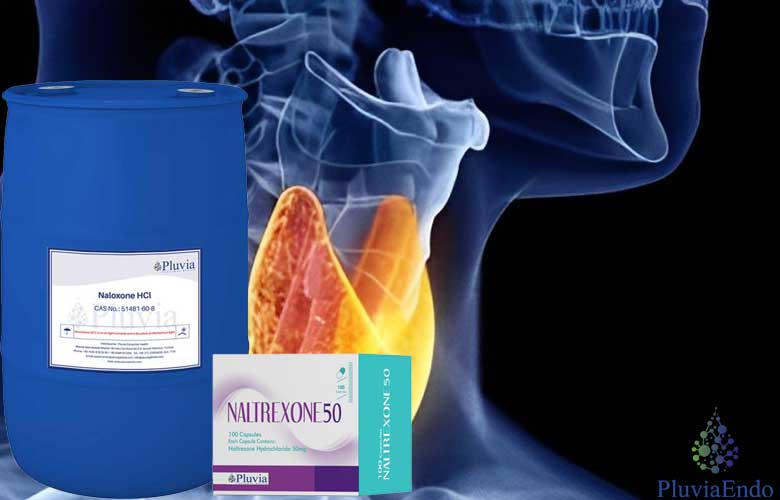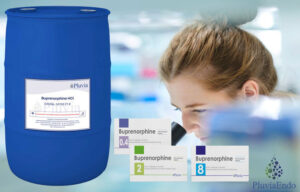As healthcare providers, we constantly seek innovative approaches to optimize patient care, particularly in managing complex endocrine disorders. One such area of growing interest is the potential synergistic effects of low-dose naltrexone (LDN) in conjunction with traditional thyroid hormone replacement therapy. This article explores the emerging evidence and clinical implications of the relationship between LDN and Thyroid. In addition, we explore incorporating low-dose naltrexone into the treatment of thyroid disorders. It is aimed with a focus on enhancing outcomes for our valued healthcare partners and their patients.
The LDN and Thyroid Connection
The thyroid gland is crucial in regulating numerous physiological processes, from metabolism and energy production to cognitive function and mood. Conditions such as hypothyroidism, Hashimoto’s thyroiditis, and Graves’ disease can significantly impact a patient’s quality of life. They also can underscore the importance of effective management strategies.
Traditionally, the mainstay of treatment for thyroid disorders has been thyroid hormone replacement therapy, typically with levothyroxine (T4) or a combination of T4 and triiodothyronine (T3). This approach can effectively restore euthyroidism in many patients. In this case, a subset continues to experience persistent symptoms, suboptimal response, or treatment-related adverse effects.
Emerging research suggests that LDN may offer a novel therapeutic avenue for enhancing the management of thyroid disorders. Particularly in cases where conventional treatments fall short.
LDN and Thyroid: The Immunomodulatory Effects of LDN
One of the key mechanisms by which low-dose naltrexone may benefit patients with thyroid disorders is its ability to modulate the immune system. In autoimmune thyroid conditions, such as Hashimoto’s thyroiditis, the body’s immune system mistakenly attacks the thyroid gland. It leads to inflammation and impaired thyroid function.
LDN exerts immunomodulatory effects by temporarily blocking the opioid receptors. It, in turn, stimulates the production of endogenous opioids, such as endorphins and enkephalins. These natural opioids play a crucial role in regulating the immune response. Also, they play a vital role in reducing inflammation and potentially mitigating the autoimmune processes underlying conditions like Hashimoto’s thyroiditis.
By addressing the underlying autoimmune component, LDN may help stabilize thyroid function. It can also potentially reduce the need for higher doses of thyroid hormone replacement therapy. This synergistic approach can lead to improved symptom management, better quality of life, and reduced long-term complications for patients.
Enhancing Thyroid Hormone Replacement Therapy
In addition to its immunomodulatory effects, LDN may also enhance the efficacy of traditional thyroid hormone replacement therapy. Some studies have a relationship between LDN and Thyroid. They suggested that LDN can improve the conversion of T4 to the more active T3 hormone, which is essential for optimal cellular function and metabolic regulation.
Patients with thyroid disorders, particularly those with Hashimoto’s thyroiditis or hypothyroidism, may experience suboptimal response to levothyroxine (T4) alone. The addition of LDN to the treatment regimen has been shown to potentially improve the bioavailability and utilization of thyroid hormones. This leads to better symptom control and overall well-being.
Furthermore, LDN may also help to address some of the common side effects associated with thyroid hormone replacement therapy. For instance, it can address fatigue, weight fluctuations, and mood disturbances. By optimizing the body’s response to thyroid hormones, LDN can contribute to a more balanced and harmonious physiological state. It can ultimately enhance the overall effectiveness of the treatment plan.
LDN and Thyroid: Clinical Considerations and Dosing
When incorporating LDN into the management of thyroid disorders, healthcare providers should carefully consider the appropriate dosing and monitoring strategies. The typical LDN dosage range for thyroid-related conditions is between 1.5 to 4.5 mg per day, taken at bedtime.
It is important to note that LDN is an off-label use of naltrexone in most countries. Thus, healthcare providers should be well-versed in the pharmacology, potential interactions, and safety profile of this medication. Careful patient selection, close monitoring, and regular follow-up are essential to ensure the safe and effective use of LDN in conjunction with thyroid hormone replacement therapy.
Potential Challenges and Limitations
While the emerging evidence on the use of LDN in this type of disorder is promising, it is essential to acknowledge the potential challenges and limitations that healthcare providers may encounter.
Firstly, the available research on the topic is still relatively limited, with the majority of studies being small-scale or case reports. Larger, well-designed clinical trials are needed to further establish the efficacy and relation of LDN and Thyroid in this context.
Additionally, the availability and accessibility of LDN may vary depending on the healthcare system and regulatory environment. Healthcare providers should be aware of the local guidelines and regulations surrounding the off-label use of medications, as well as any potential reimbursement or coverage issues that may arise.
Lastly, patient adherence and acceptance of the LDN regimen can also pose a challenge. Healthcare providers should engage in thorough patient education, address any concerns, and closely monitor for potential side effects or adverse events.
LDN and Thyroid: Conclusion
As healthcare providers, we have a responsibility to explore innovative and evidence-based approaches to enhance the management of complex endocrine disorders, such as thyroid conditions. The emerging research on the potential synergistic effects of low-dose naltrexone or LDN and thyroid hormone replacement therapy presents a promising avenue for improving patient outcomes and quality of life.
By incorporating PluviaEndo‘s Naltrexone into the treatment plan, we can leverage its immunomodulatory properties to address the underlying autoimmune components, potentially optimizing the bioavailability and utilization of thyroid hormones. This multifaceted approach can lead to better symptom control, reduced treatment-related adverse effects, and ultimately, enhanced overall well-being for our valued patients.
As we continue to navigate the evolving landscape of thyroid disorder management, integrating LDN into the treatment regimen warrants careful consideration and further exploration. By staying at the forefront of these advancements, we can provide our healthcare partners and their patients with the most comprehensive and effective care, ultimately improving the lives of those entrusted to our care.







